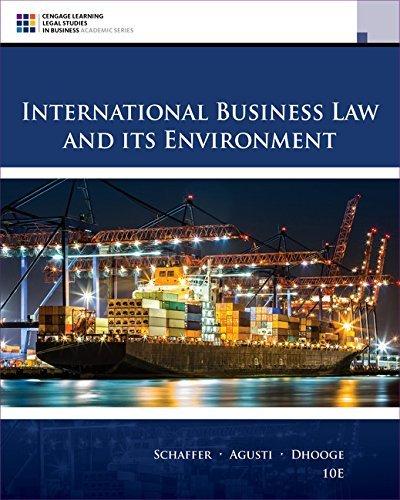Defendant is a Chinese citizen who worked as an engineer in Beijing developing photoelectric technologies. Defendant's friend
Question:
1. From the limited facts presented here, do you think a reasonable juror could conclude that the defendant knew his conduct was illegal? Why or why not?
2. In addition to penalties faced during the sentencing in this case, what administrative or civil penalties did the defendant face?
Fantastic news! We've Found the answer you've been seeking!
Step by Step Answer:
Related Book For 

International Business Law And Its Environment
ISBN: 9781305972599
10th Edition
Authors: Richard Schaffer, Filiberto Agusti, Lucien J. Dhooge
Question Posted:





